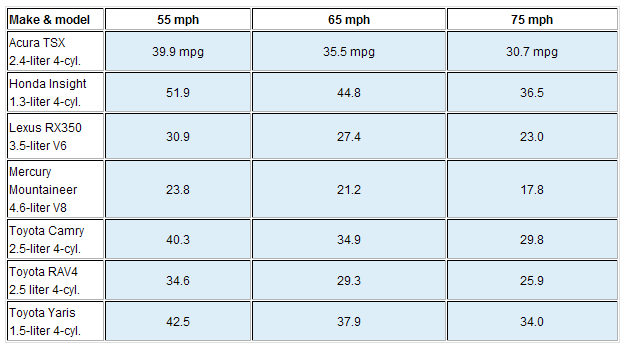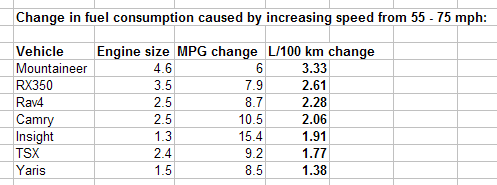When I saw that
Consumer Reports had recently done a comparison of the fuel consumption of various cars over a range of speeds (55, 65 & 75 mph), my first thought was: "good, more data to add to the pile."
Here's their data:

All well and good, right? You could make some strong, logical conclusions from those figures. Right?
Apparently not if you're Consumer Reports!
Here's what they concluded and decided to highlight about the 2nd gen Honda Insight:
Quote:
|
The Honda Insight hybrid showed the largest drop in fuel economy — over 15 mpg going from 55 to 75 mph. [...] Vehicles with lower fuel efficiency had the smallest drop.
|
That statement is misleading
at best, and outright wrong if you examine the numbers in a meaningful way.
If we accept that fuel economy is the relationship between fuel used and distance travelled, then the Insight's absolute increase in fuel consumption caused by increasing speed actually lies closer to the middle of the pack of the vehicles tested.
You can see this if you use litres/100 km (or you could use gallons/100 miles):

So the Insight may have had the biggest numerical MPG drop of the vehicles tested, but that's not the same as the largest change in fuel economy of the fleet.
It's pretty clear that in terms of
energy consumption, emissions, and money, the absolute costs of increasing speed (ie. most meaninful in the real world) are largest in the vehicles we would expect (the bigger ones with the largest engines).
This is a glaring example of how MPG can be a misleading/confusing metric for consideration of fuel economy: I can only assume the writer saw the Insight's apparently "massive" 15 mpg drop and it drew her focus.